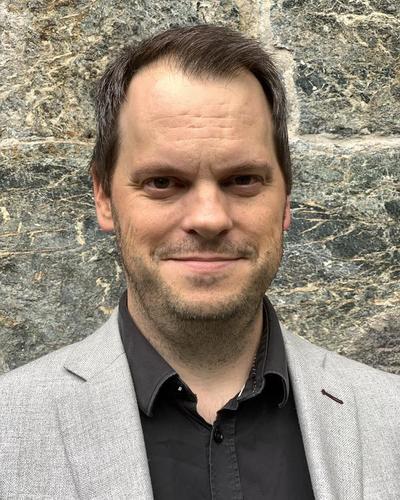Philosophical questions at the core of feminist theory
In a recent blog post, Claus Halberg summarizes his project’s starting point in feminist theory and posits that philosophical questions are at the core of feminist theory.

Main content
Claus Halberg, post-doctoral fellow at the Centre for Women’s and Gender Research (SKOK), is project leader for the EU-funded project Feminist Theory After Sex and Gender. FEMSAG seeks to develop conceptual tools with which to address nature-nurture issues pivotal to the current philosophy, science and politics of sex and gender.
1st round: Feminist Theory
In the blog post, FEMSAG conceptual primers, 1st round: "Feminist Theory," Halberg sets out to reflect on the meaning of the first term making up his project title, "feminist theory." The post is, as the title suggest, the first in a planned series of blog entries where Halberg intends to explore concepts included in and related to his project’s title.
"The piece is conceived as an effort to 'prime' readers with a specific understanding of some basic terms that will inform subsequent writing - both scholarly and the more accessible type - that I will undertake in the context of the project," says Halberg. "Since the meaning of those terms are subject to ongoing contestation, however, I also provide some justification for the way I use them."
The “material turn” in feminist theory
Halberg summarizes his project’s starting point in feminist theory in four points (see fact box) and poses some philosophical questions about nature and nurture that he considers foundational to feminist theory. In so doing, he draws on thinkers associated with the so-called material turn in feminist theory.
"As I understand it, the 'material turn' in feminist theory has become the term of choice to refer to the movement away from the strong emphasis on culture and the social construction of both sex and gender that held sway in feminist theory especially during the Nineties," says Halberg. "The theorists I mention, such as Elizabeth Grosz, Karen Barad, and Vicky Kirby, have in common a stronger enthusiasm for natural-scientific accounts of the body in its materiality and of the value or relevance of such accounts for feminist-theoretical projects."
FEMSAG and the nature vs. nurture debate in Norway
Halberg has in a previous interview about his project mentioned that the debate following the Norwegian TV series Hjernevask from 2010 strengthened his interest in the themes he explores in FEMSAG. Ten years after the series aired, Halberg is of the opinion that the atmosphere of fierce contestation that dominated the debate back then has subsided somewhat, but that it tends to flare up every time some international intellectual with a strong public profile, such as Steven Pinker and Jordan Peterson, visits Norway and takes the opportunity to say something provocative about gender equality.
"My impression is, however, that the positions have not moved considerably in these matters," Halberg states. "As for the possible impact of FEMSAG on the state of this debate, I hope that it could make interested readers from the general public alive to the philosophical background against which questions of the causal origins of human differences– gender-related or otherwise – are debated."
Halberg hopes that at the very least, his work could contribute to heightened awareness of the fact that seemingly straightforward, empirical questions like these must be pursued against some background of conceptual and theoretical presuppositions that are always open to contestation.
Future rounds of FEMSAG blogposts
What can be expected of Halberg’s future blog posts about FEMSAG? A second round of "conceptual primer" is planned that will focus on the conceptual pair "sex" and "gender," and also include some reflections on the prepositional “after” that joins together all of these terms in the project title.
Further on, he hopes to write something about what he calls the theoretical landscape in terms of which sex and gender – given a certain conceptual clarification – have been variously related in the scholarly literature within different intellectual traditions.
"Also look out, in the course of time, for some analyses of key terms such as 'neurosexism' and 'naturalism,' says Halberg.


